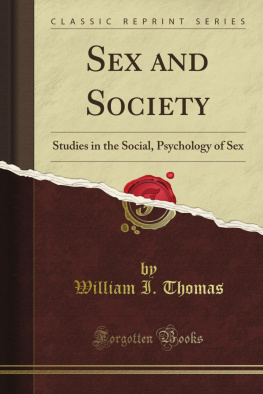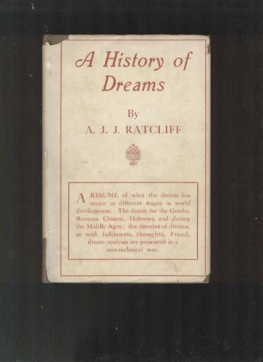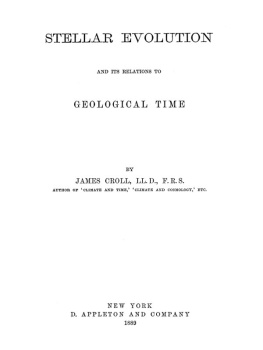GABRIEL DEVILLE
Translated by
ROBERT RIVES LA MONTE
CHICAGO
CHARLES H. KERR & COMPANY
1907
PRESS OF
JOHN F. HIGGINS
CHICAGO
Socialism, Revolution and Internationalism.
I
Socialism, revolution, internationalismthese are the three subjects regarding which I beg your permission to say whatwith no pretence of being infallibleI believe to be the truth. At the risk of telling you nothing new, I will simply try to speak truth. Those who reproach the socialists for constantly repeating the same thing, have, no doubt, the habit of accommodating the truth to suit their taste for variety. On the other hand, to talk of socialism is to do what everyone else is doing at this time, but I will speak to you of it from the standpoint of a socialist, andunhappilythat is not as yet equally common.
The signal and distinctive mark of modern socialism is that it springs directly from the facts. Far from resting on the imaginary conceptions of the intellect, from being a more or less utopian vision of an ideal society, socialism is to-day simply the theoretical expression of the contemporaneous phase of the economic evolution of humanity.
At this point we are met with two objections.
On the one hand, because we say that socialism springs from the facts, we are accused of denying the influence of the Idea and the liberal defenders of the Idea rise up in revolt; they can calm themselves again. How could we deny the influence of the Idea, when socialism itself is as yet, as I have just pointed out, only a theoretical expression, i.e., an idea, which we nevertheless believe has a certain influence?
We merely assert that a truth, irrevocably established by science as a valid generalization, does not cease to be a truth when it is applied to human history and socialism. This truth is the action of the environment: all living beings are the product of the environment in which they live. To the environment, in the last analysis, to the relations necessarily created by the multiple contacts, actions and reactions of the environment and the environed are due all the transformations of all organisms and, in consequence, all the phenomena that emanate from them. Thought is one of these phenomena, and, just like all the others, it has its source in actual facts. To say that socialism springs from the facts, is then simply to place the socialist idea on the same plane with all other ideas. In socialism, as in all subjects, the idea is the reflex in the brain of the relations of man with his surroundings, and the greater or less aptitude of the brain for acquiring, retaining and combining ideas, constitutes intelligence. The latter, in making various combinations out of the elements provided by the environment, may obviously lose sight of the reality which serves as its foundation, but our socialism aims never to depart from the data drawn from unbiased observation of the facts.
We are accused, on the other hand, because we believe that the economic question contains the whole of socialism, of denying the existence and influence of the intellectual factor, the sentimental factor, the psychological factorin short, a whole collection of factors. Now, as I am going to try to show you, our only error, if it is an error, is that we wish to put the cart behind the horse, and to accuse us of wishing to suppress the cart because we refuse to put it in front or alongside of the horse, proves, at once, the incontestable desire to find us at fault, and the difficulty of gratifying that desire.
Man, as I said just now, is the product of the environment. But, to the influence of the cosmic or natural environment, which affects all beings, there was soon joined in his case the influence of the special environment created by him, an environment resulting from the acquired means of action, from the material of the tools used, from the conditions of life added by him to those furnished him by nature, or else substituted for them, the influence, in a word, of the economic environment, an influence which has gradually become predominant because the conditions of life, determining in all orders of society man's mode of life, have finally become less and less dependent upon the purely physical capabilities of the cosmic environment, and more and more dependent upon the means of action acquired by human exertions, upon the artificial capabilities of the economic environment, upon human thought materialized in various innovations.
We find at the foundation of everything affecting man the influence of the natural and economic environments, and, if it is quite true that we recognize the preponderant influence of the economic environment, it is passing strange to accuse us of not recognizing the action of human intelligence, which we assert is the creator of this environment. Only we do not forget that, at any stage of development whatever, intelligence does nothing by its creations except to elaborate the elements which it finds "ready made," as it were, in the environment.
Therefore, intelligence can, by working with the elements furnished by the existing environment, produce a change in this environment. This new environment thus changed becomes the determining environment of future intelligence. You see that, far from degrading the role of intelligence, we attribute to it a considerable importance; we only refuse to see in it a spontaneous phenomenon.
Having replied to the reproach of not taking into consideration what is called intelligence and is paraded as the intellectual factor, it is scarcely necessary for me to honor with special replies all the other factors mobilized against us, as they are all merely products of intelligence. I will remark, however, that if it is true that we do not deduce our theory from this association of factors, this does not authorize the conclusion that morality, right, justice, psychology, and sentiment are for us words devoid of meaning. To refuse to elevate them to the rank of scientific proofs, which is what we do, and all that we do, is not to deny them; it is simply to avoid employing them for a use for which they are not and could not be destined. Because, to uphold our theory, we prefer to have recourse to the observation of facts and their tendencies, we have never proscribed the conception or sentiment of justice as motives for adhesion to that very theory, and we do not hesitate to declare that that which is unfitted to serve as a scientific proof, may be utilized as a motive for action.
Moreover, even those who attribute to the "syndicate" of factors a preponderating power over historical progress do not attribute to intelligence a greater influence than we recognize as belonging to it. In fact, the controversy here is not concerning the influence of ideas. The controversy arises when we attempt to determine which ideas are influential. On either side it is simply a matter of choosing from among the products of intelligence. Our opponents insist upon the claims of the factors in combination, instead of recognizing, as do we, the predominant influence of the ideas which clothe themselves in the phenomenal form of acts, such as inventions, etc., which lead to the modification of the economic environment and consequently, as we believe, to the modification of man himself, in his mode of life first, in his habits and methods of thought afterward.












